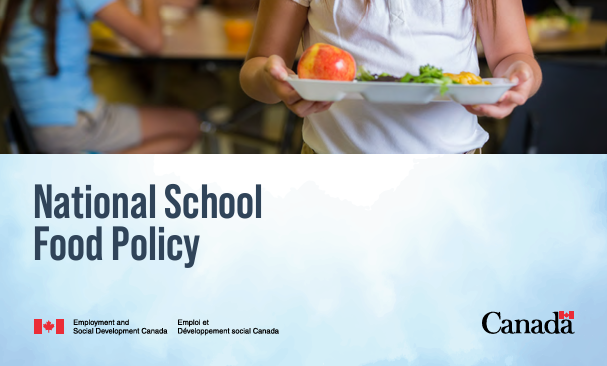National School Food Policy
The Vison of the federal government’s 2024 National School Food Policy is: all children and youth in Canada have access to nutritious food at school, in an inclusive, non-stigmatizing environment that fosters healthy practices, while strengthening connections with local food systems, the environment and culture.
This policy document states that when children are hungry, they cannot learn, and school food programs can ensure that no child has to go hungry at school. Interconnected benefits of such programs result in a high return on investment:
- The World Food Programme estimates that every $1 to school food programming internationally yields between $3 to $10 in economic return, while studies in the US and UK suggest that every dollar invested in school food programs provides $2 to $6 in health, social and economic benefits.
- In Canada and elsewhere, school food programs can help advance Sustainable Development Goals, by mitigating hunger, promoting good health and well-being and improving educational outcomes.
- According to Statistics Canada, in 2022 more than 2.1 million children under the age of 18 in Canada reported that they experienced some level of food insecurity over the past 12 months. UNICEF’s 2017 Report Card ranked Canada 37 out of 41 wealthy nations for children’s access to nutritious food.
Providing nutritious meals to children and youth provides many benefits, including:
- reducing hunger
- improving nutrition and health outcomes
- supporting local economies
- improving learning outcomes
- promoting sustainability
- helping families manage the higher cost of groceries
Published By: Government of Canada
Publication Date: 2024
Click here to access National School Food Policy 2024






